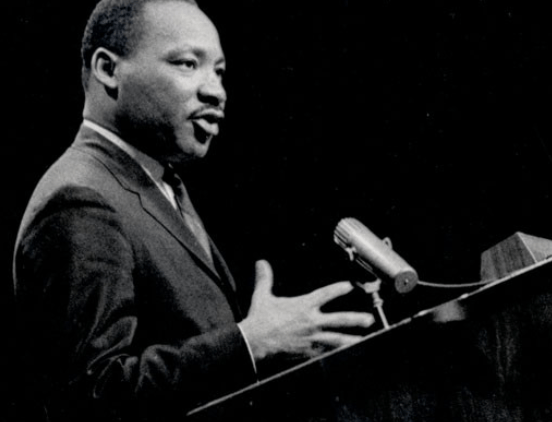We begin our semester and a new year on a day devoted to honoring the life and legacy of Dr. Martin Luther King Jr. He is one of my personal heroes. He is a powerful inspiration to all who challenge social injustice. Sadly, our nation and University face significant challenges, and King’s words and deeds are more important than ever.
Over the past eight months, we have witnessed an intense national focus on freedom, liberation and justice. Many Penn Staters took part in the peaceful marches, demonstrations and activism. Thank you. Thousands of you wrote to my office, urging us to join the movement and take immediate and substantive action at an institutional level. Again, thank you.
As a result of your efforts, we took a critical look at our own progress in the areas of diversity, equity and inclusion. We responded by developing a plan for action that addressed eight areas and involved students, faculty, staff and the surrounding community. Work began immediately, and I’m very grateful to everyone who has served on the Select Presidential Commission on Racism, Bias and Community, the Task Force to review the Student Code of Conduct, the Task Force on Policing and Communities of Color, as well as those across the University who participated in the process.
The first phase of the work is complete, and the draft reports are publicly available. Penn State is moving forward with actions that will impact every area of our University — from academic programs to auxiliary services to human resources to the Board of Trustees.
The overarching strategy is to take an enterprise approach, in other words, take the steps to maximize diversity, equity and inclusion networks, resources and impact through greater partnership and coherence among the University-level units. Notably, we are also adding a direct reporting line to the president.
Many students complained that the Student Code of Conduct was ineffective as a mechanism to promote social justice. Our students challenged the University to better address issues of off-campus conduct as well as for acts of bias. After a thorough review of community input and benchmarks from our Big Ten peers, the task force to review the Student Code of Conduct developed eight major recommendations. These are designed to ensure that Penn State values are part of and reflected by the Code of Conduct. We will adopt the revised code for the spring semester and test its effectiveness through its implementation.
As the chief governing body of the University, the Board of Trustees is also demonstrating leadership of this effort. They created an oversight task force on racism, bias and community safety led by Trustee Brandon Short. They have set a goal for their membership to come from at least 50% underrepresented groups on the board by 2025. And they repurposed the standing Compensation Committee as the Equity and Human Resources Committee with a focus on advancing equity, inclusion and diversity at Penn State.
Finally, I wish to note the importance of the Educational Equity Matching Program and to express my gratitude to everyone who has contributed to its success. Our community has given generously to the four matching opportunities, and combined with University matching funds, the total impact of the committed gifts will be over $22 million. This includes 167 new scholarships that will directly support our efforts to promote diversity, equity and inclusion.
There is no doubt that the past year has been challenging. But I’m proud of the strength and resilience of our community. I hope you’ll take some time today and this week to celebrate the life and livelihood of Dr. King. I hope you’ll also carry a spirit of unity forward as we continue our efforts to build a more diverse, equitable and inclusive University. Thank you for being part of Penn State.





